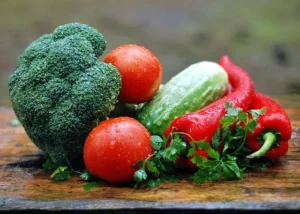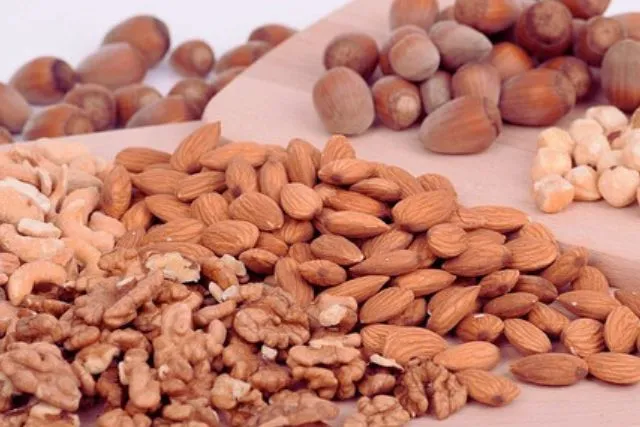10 Healthy Foods That Everyone Should Eat

Healthy Foods , Regular consumption of healthy food reduces the risk of various complex diseases especially heart disease, stroke, diabetes, cancer etc. The daily diet should include some healthy foods that will provide enough calories and also help in healthy living by boosting the body’s immune system. This article discusses in detail about 10 healthy foods that everyone should eat.
10 Healthy Foods:
Fruits
Our country has a variety of fruits available throughout the year which are very delicious to eat and very beneficial for health. A minimum of 1.5 to 2 cups of fruit should be included in the daily diet. Fruits are low in calories but high in fiber, vitamins, minerals and phytonutrients. Vitamins and phytonutrients in particular boost the body’s immune system. The fruit contains very little fat but no harmful cholesterol. Regular consumption of fruits reduces the risk of heart disease such as high blood pressure, heart attack, stroke etc. However, sweet fruits contain glucose and fructose, which can raise blood sugar levels in patients with diabetes. And so diabetics should eat fruits in moderation. Also for everyone it is better to eat fruit directly rather than making fruit juice.
Vegetables
Vegetables should be included on the plate every day so that at least 2 to 3 cups of vegetables are consumed daily. All the nutrients are not available in just one type of vegetables and therefore it is necessary to develop the habit of eating different types of vegetables. Vegetables are low in calories, fat and protein but are high in fiber, vitamins, minerals, anti-oxidants, etc. Eating enough vegetables every day reduces the risk of heart disease, helps prevent cancer, keeps eyes healthy, plays a beneficial role in the digestive system and helps control body weight. Also, vegetables are ‘low-glycemic index foods’ that do not raise blood sugar levels. Colored and green vegetables should be eaten in sufficient quantity but potatoes should be consumed in moderation for diabetic patients.

Nuts
Nuts are a nutrient-dense food, especially nuts, which are rich in beneficial fats, calories, minerals and phytonutrients. Among the benefits that can be obtained by eating almonds, it is important to control body weight, prevent heart disease, control diabetes, help prevent cancer, increase male sexual ability, etc. Almonds come in a wide variety of forms and kinds. For example, almonds, cashews, pistachios, walnuts, cashews and Brazil nuts. The most readily available almonds in our country are Chinese almonds which can be eaten raw and roasted. Any kind of nuts of your choice can be benefited by eating 100 grams daily. However, in some cases, if there is an allergy to almonds, almonds cannot be eaten for them.

Eggs
Many people avoid eggs because they fear that eating eggs will increase the level of bad cholesterol in the blood. But recent studies have shown that eating eggs is safe and has health benefits. Eggs contain a large amount of calories, protein, vitamin D, folate, selenium, etc., which contribute to various important functions of the body. Eggs contain a large amount of choline, which plays an important role in the normal functioning of cells and the brain development of children and adults. Helps prevent problems. 1 to 2 eggs should be eaten daily and it is more beneficial for health if eggs are boiled rather than fried in oil.

Meats
The best source of protein is meat and protein is essential for replenishing and growing the body. Apart from protein, meat also provides iron, zinc, selenium, phosphorus, choline, vitamin B and vitamin K. Cows, chickens, goats, sheep etc. provide meat of which chicken is the most readily available and suitable for everyone. Sufficient amount of meat should be consumed to increase body strength and for those suffering from anemia. 50 to 70 grams of meat can be consumed daily for a person. However, those who have high levels of bad cholesterol in their blood, suffer from heart disease or have kidney problems should eat meat in moderation following the doctor’s instructions.

Fish and seafood
Fish alone is a good source of protein and is not harmful to the heart. Rather, fish contains a large amount of omega-3 fatty acids, which are very beneficial for the heart. Seafood contains many elements that are beneficial to the body, including iodine. Studies have shown that people who regularly eat seafood, especially seafood, have a reduced risk of many diseases, including heart disease, dementia, depression, and live longer.

Grains
A large part of the food list consists of grains which are the main source of carbohydrates. The main grain in our country is rice which provides energy for our body. Most people are used to eating white rice for three meals which is not at all beneficial for health. Instead, white rice is a high-glycemic index food that can raise blood sugar levels. Brown rice is more beneficial for health than white rice. Because it contains a lot of fiber that helps in controlling blood sugar levels. Also helps control body weight, prevent heart disease and relieve constipation. However, brown rice takes a little longer to cook and is not very palatable. Oats, which contain a lot of fiber and minerals, can be used as an alternative to rice.

Breads
As a source of carbohydrates, bread is a popular food that many people like to have for breakfast and dinner with vegetables, meat or jelly. Healthy bread should be low in calories and high in fiber. Although red flour bread is not tasty to eat, it has the most beneficial role for the body. Eating this bread does not raise the blood sugar level. However, commercially available bread is low in fiber and high in sugar, which has harmful effects on diabetics. For those who want to control body weight, it will be beneficial to eat flour bread with vegetables instead of 2 meals a day. But since bread is a food rich in fiber, it is necessary to drink enough water.

Milk and Milk Products (Dairy)
Milk and various dairy products are delicious to eat as well as provide many calories to the body. It also contains various minerals including calcium, magnesium which contribute to various important functions of the body. Dairy food Yogurt plays a beneficial role for the bacteria living in the human gut. However, milk and dairy products contain excess fat and must be consumed in moderation.

Fats and Oils
Fat is not only harmful to the body but there are three types of fat in which unsaturated fat plays a very beneficial role for the body. Unsaturated fats include fats from vegetable sources including olive oil, sunflower oil, mustard oil, and soybean oil. According to the World Health Organization guidelines, a maximum of 30 percent of daily caloric needs can be obtained from fat, of which the amount of saturated fat should be less than 10 percent and the amount of trans fat should be less than 1 percent. Foods from animal sources contain saturated fats and trans fats are found in processed foods, fast foods, cakes, pastries, butter and fried foods.
Healthy foods to eat everyday
In the pursuit of a vibrant and nourished life, incorporating a variety of nutrient-rich foods into your daily diet is paramount. Beyond the commonplace recommendations, consider embracing the potent goodness of chia seeds. These tiny powerhouses are rich in omega-3 fatty acids, fiber, and antioxidants, promoting heart health and aiding digestion. Pair them with luscious berries, such as blueberries or raspberries, for a burst of flavor and an additional dose of vitamins. Elevate your daily greens by opting for kale, a leafy green packed with vitamins A, C, and K, as well as calcium and iron. Its robust nutritional profile contributes to bone health and immune system support. Lastly, don’t overlook the earthy charm of sweet potatoes. Brimming with beta-carotene, they not only support healthy vision but also provide a guilt-free, satisfying alternative to traditional spuds. Embrace these often overlooked gems to transform your everyday meals into a symphony of flavors and well-rounded nutrition.
Healthy foods to eat everyday breakfast, lunch and dinner
In the pursuit of a balanced and nourishing diet, selecting the right foods for each meal is paramount. For breakfast, kickstart your day with a nutrient-packed bowl of Greek yogurt topped with fresh berries and a sprinkle of chia seeds. This powerhouse combination provides a protein boost, essential vitamins, and omega-3 fatty acids to fuel your morning. When it comes to lunch, opt for a colorful salad featuring leafy greens, cherry tomatoes, avocados, and grilled chicken. This not only satisfies your taste buds but also delivers a wholesome mix of fiber, antioxidants, and lean proteins. As the day winds down, embrace the concept of a light yet fulfilling dinner by preparing a quinoa-stuffed bell pepper with black beans, corn, and diced tomatoes. This plant-based delight ensures a satisfying blend of carbohydrates, proteins, and a myriad of vitamins and minerals, contributing to overall well-being. Remember, the key to a truly healthy lifestyle lies not just in the specific foods chosen, but in the diversity and balance maintained across all meals.
What time is best for breakfast, lunch, and dinner?
Establishing a well-balanced breakfast, lunch, and dinner schedule is fundamental to maintaining optimal health and energy levels throughout the day. Kickstarting your morning with a nutritious breakfast sets the tone for the day, providing essential nutrients and fuel for your body and brain. Consider incorporating a mix of whole grains, protein, and fruits to ensure sustained energy. When it comes to lunch, focus on a balanced plate with lean proteins, colorful vegetables, and complex carbohydrates to keep you fueled and satisfied. As the day progresses, opt for a lighter dinner that includes a variety of nutrient-dense foods. Prioritize lean proteins, vegetables, and healthy fats, steering clear of heavy, calorie-laden options that can disrupt sleep. Remember, the key is not only what you eat but also when you eat—spacing meals throughout the day supports metabolism and helps maintain steady energy levels. Embracing a thoughtful breakfast, lunch, and dinner routine can contribute to overall well-being, supporting both physical and mental vitality.
What 3 foods should you eat daily?
In the pursuit of a balanced and nourishing diet, incorporating certain foods into your daily meals can significantly contribute to overall well-being. Firstly, consider including a variety of colorful vegetables, such as leafy greens, bell peppers, and carrots. These vegetables are rich in vitamins, minerals, and antioxidants that support various bodily functions and promote good health. Secondly, prioritize sources of lean protein, such as fish, poultry, tofu, or legumes. Protein is essential for muscle repair, immune function, and maintaining a feeling of fullness throughout the day. Lastly, don’t overlook the importance of whole grains, like quinoa, brown rice, or oats, as they provide complex carbohydrates that sustain energy levels and offer essential fiber for digestive health. By embracing a daily menu that features these nutrient-dense options, you’re not just eating; you’re nourishing your body with the building blocks it needs to thrive.
Final Words:
According to healthy eating guidelines from Harvard University’s School of Public Health, half of the daily plate should be fruits and vegetables, one-quarter should be whole grains or breads, and the rest should be low in fat with protein. Also, drink enough water and avoid sugary foods with simple sugars, trans fats as much as possible.






